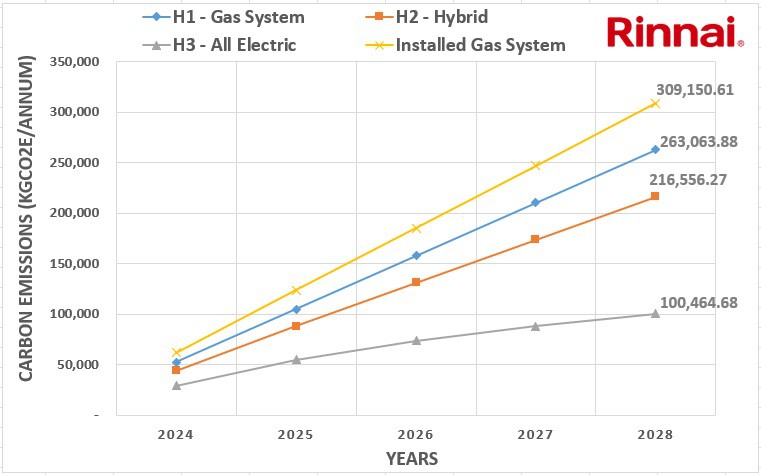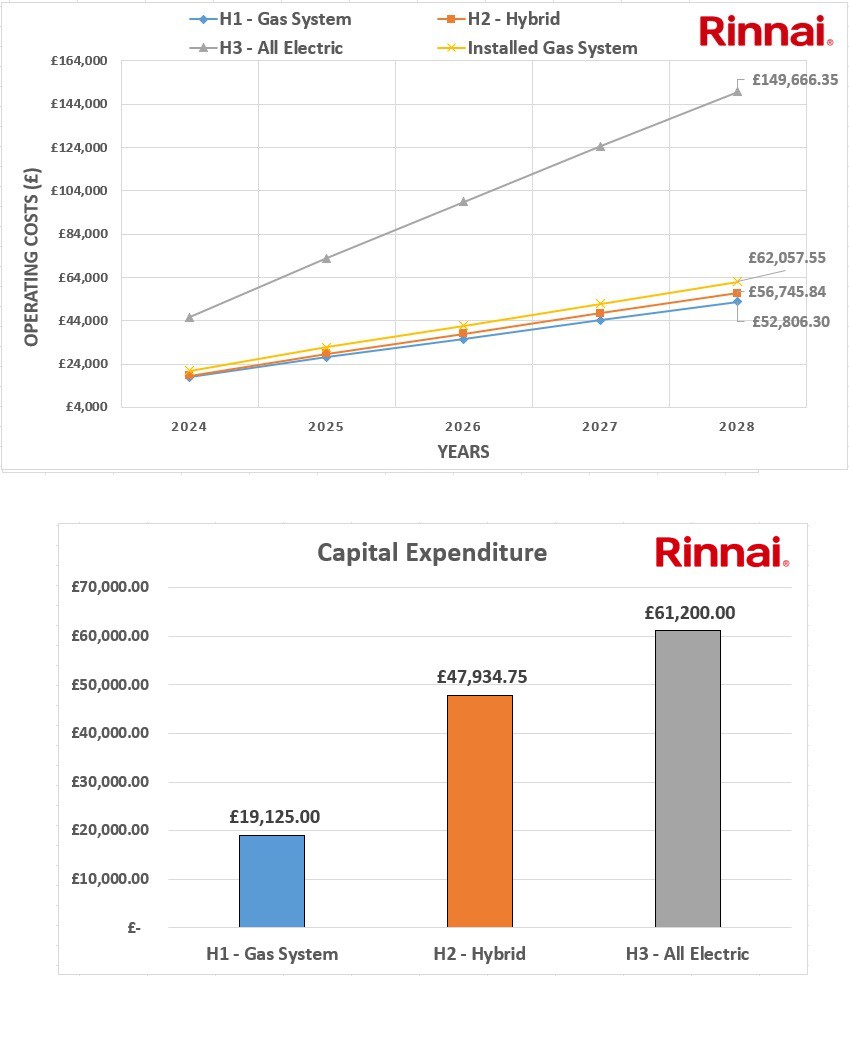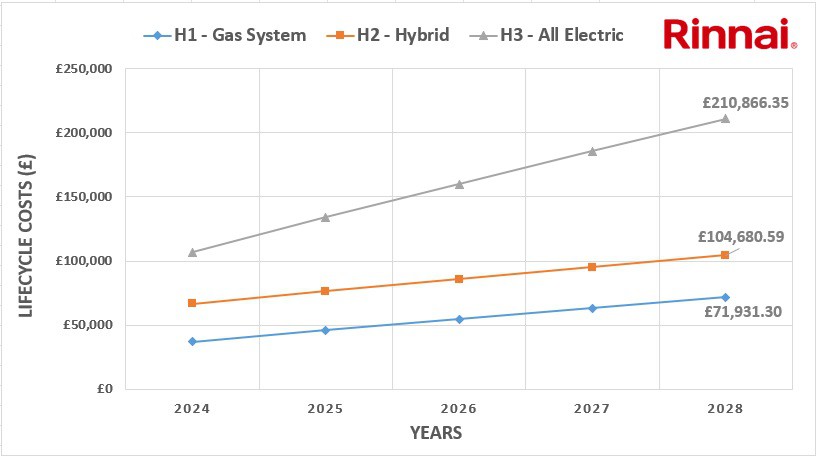White paper - Unveiling the true meaning of value engineering in commercial hot water

Rinnai has released another whitepaper - “Optimizing Domestic Hot Water Systems for Archetype Care Homes: A Value Engineering Approach” which, within the main body of the analysis, is a case study demonstrating the optimal solution for DHW provision in an archetype care home with specific requirements including a 20% reduction in carbon footprint, OPEX considerations and available space for only 2 heat pumps.
There are five main solutions presented in this case study for optimal DHW requirements in an archetypal care home:
- Electric immersion cylinders
- Heat pumps
- High efficiency gas water heaters
- Hybrid system comprising of 20% heat pump and gas water heaters
- Hybrid system comprising of 40% heat pump and electric immersion cylinders.
Due to the requirements of the care home and assessing all possibilities against the pre-determined criteria, solutions 3,4 and 5 were viewed as being worthy of further analysis.
Step 4 of the value engineering methodology proposed by Rinnai UK, analyses solution against the current installed system of three non-condensing storage water heaters.
Figure 1 showcases the carbon performance of solutions 3, 4 and 5 as well as the currently installed system of three storage heaters. The colours of each system are highlighted at the top of the graph in blue (Solution 3), orange (Solution 4) and grey (Solution 5).
Figure 2 shows operating costs over 5 years for all three solutions (blue, orange and grey) and the currently employed gas storage system (yellow) is also provided below. Solution 3 highlighted in blue, the gas system costs £52,806. Solution 4, the hybrid system will cost £56,746, whilst solution 5, the all-electric system costs £149,666.
Of note is the costs of electricity in the UK which are being targeted by the government to fall by 2035 and be an integral part of cleaning the grid – and note that Figure 2 utilizes Govt forecast statistics.
Figure 3, below, is a graph that illustrates the CAPEX costs associated with each solution. Solution 3 (blue), high-efficiency gas water heaters will cost £25,500. Solution 4 (orange), the hybrid system comprising of 20% heat pump and gas water heaters costs £63,913 and finally, solution 5 (grey) the all-electric system comprising of 40% heat pump and electric immersion cylinders will cost £81,600.

Figure 4 is the final graph that gives the 5-year life cycle costs associated with each system. Solution 3, the gas system (blue) will cost £78,306. 30. Solution 4, the hybrid system (orange) will be £120,658.54. And finally, Solution 5 (grey) - the all-electric system will cost £231,266.35.
Therefore, the decisive question for the site is whether the reduced carbon emissions of Solution 5 is perceived as far more valuable than the lower lifecycle costs of Solution 4.
Due to the customer’s brief of requirements to include: -
- 20% reduction in carbon footprint
- OPEX considerations
- space for only two heat pumps –
The optimal solution for DHW provision is the hybrid system that includes the 20% heat pump and gas water heaters. It delivers reduced carbon emissions and financial expenditure and can operate within a space limited environment.
Rinnai aims to demonstrate to specifiers, consultants and system designers that the company’s technology provides practical, technical and economic solutions for businesses and sites who wish to significantly reduce their carbon emissions.








